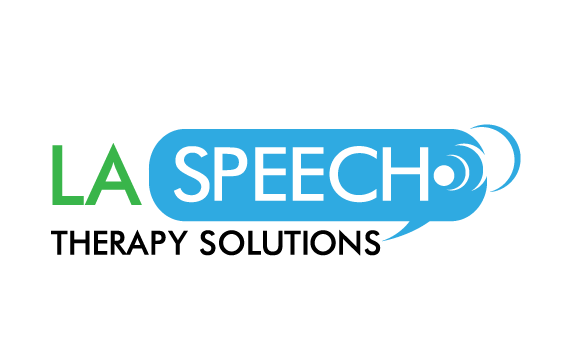
A MA-CFY Speech Pathologists job (SLP) plays a crucial role in helping individuals overcome communication and swallowing disorders. SLPs have a variety of professional options, thus their knowledge is not restricted to clinical settings. This article examines a variety of employment opportunities in the field of speech-language pathology, including those for MA-CFY speech pathologists and SLP assistants.
1. MA-CFY Speech Pathologists Job
Master of Arts-Clinical Fellowship Year (MA-CFY) Speech pathologists are specialists who have finished their master’s degree and are now completing their clinical fellowship year, which is a term of supervised practice prior to receiving full license. They work under the supervision of skilled SLPs during this time, learning crucial practical skills for identifying and treating communication difficulties. In order to hone their skills and get ready for independent practice, MA-CFY speech pathologists may work in hospitals, schools, rehabilitation centers, or private clinics.
2. Speech-Language Pathology Assistants Job
SLPAs, or speech-language pathology assistants, are essential to certified SLPs. They support SLPs in carrying out therapy programs, performing screenings, and compiling progress reports while working under their supervision. SLPAs frequently work in clinics, hospitals, and schools, assisting SLPs in providing high-quality speech and language therapy services to patients of all ages. They play a crucial role in facilitating treatment sessions and making sure patients get regular, all-encompassing care.
3. Clinical Speech-Language Pathologist
Individuals of all ages with speech, language, and swallowing impairments are diagnosed and treated by licensed clinical speech-language pathologists. They work in a variety of places, such as private practices, hospitals, and rehabilitation facilities. Clinical SLPs conduct patient evaluations, create individualized treatment plans, and deliver therapy to enhance voice modulation, fluency, and communication abilities. To improve the general health of people with speech and language impairments, they work along with other medical specialists.
4. Academic Speech-Language Pathologist
Some SLPs decide to pursue academic careers, working as professors or researchers in colleges and universities. They increase our understanding of communication disorders through conducting research, teaching, and publishing publications that are relevant to the area. Academic SLPs also serve as mentors for prospective SLPs, influencing the direction of the field.
5. Researcher and Developer
Researchers in speech-language pathology examine cutting-edge methods, therapies, and technology to enhance the identification and treatment of communication impairments. They contribute to the creation of cutting-edge solutions through their employment in research institutions, governmental organizations, or private businesses. These experts are essential to expanding our understanding and improving the efficacy of speech and language therapy.
6. Telepractice Speech-Language Pathologist
SLPs can now use telepractice to deliver therapeutic services remotely because to technological improvements. Through video conferencing, telepractice SLPs provide diagnostic, therapy, and consultation services to clients. This strategy makes speech-language pathology services more accessible, especially for people who live in distant places or have limited mobility.
What is a CFY in speech pathology?
Following the completion of their master’s degree in speech-language pathology, aspirant speech-language pathologists (SLPs) must undergo a Clinical Fellowship Year (CFY) in speech pathology. The CFY enables SLPs to bridge the gap between theoretical knowledge acquired in academic settings and practical application in actual clinical settings. It is essentially a post-graduate time of supervised professional practice.
Purpose of CFY:
The main goal of the CFY is to give recently graduated SLPs the chance to put their talents to use while being guided and supervised by more seasoned and licensed SLPs. It acts as a step between being a student and being an independent practitioner, enabling people to hone their clinical skills, boost their self-assurance, and obtain a better grasp of the complexity of speech and language impairments.
Supervision and Mentorship:
SLPs are mentored by licensed, experienced SLPs who provide them with advice, criticism, and support while they are in the CFY. This mentorship is priceless because it offers CFY SLPs a secure setting in which to learn, ask questions, and get guidance from experts with extensive expertise in the industry.
Clinical Experience:
CFY SLPs work with people of all ages who have a range of communication and swallowing difficulties in a hands-on therapeutic setting. Patients are evaluated, treatment plans are created, therapy sessions are delivered, and progress is tracked. Their capacity to give efficient speech and language therapy services is greatly improved by this practical experience, which helps them hone their talents.
Professional Development:
The CFY phase emphasizes professional growth in addition to clinical abilities. CFY SLPs study interdisciplinary collaboration, billing and documentation procedures, and ethical considerations. Additionally, they improve their communication skills with patients, families, and other healthcare professionals, which is crucial for an effective SLP practice.
CFY and Licensure:
A CFY must be successfully completed in order to be fully licensed as a speech-language pathologist in various nations. Before engaging in independent practice, SLPs must successfully finish their CFY and frequently ace a national or state exam to prove their competence. This guarantees that certified SLPs have attained the required levels of proficiency and are well-equipped to offer their patients high-quality service.
Benefits of Becoming an MA-CFY Speech Pathologist
A big step toward a fulfilling and influential career is starting the path to becoming an MA-CFY (Master of Arts-Clinical Fellowship Year) speech pathologist. For those pursuing a career in speech-language pathology, this transitional period is valuable experience since it offers a variety of advantages on both a professional and personal level.
1. Professional Guidance and Supervision:
The chance for professional direction and supervision is one of the main advantages of the MA-CFY post. MA-CFY speech pathologists receive helpful criticism and assistance while working under the guidance of seasoned and licensed SLPs. Their clinical abilities, expertise, and ability to ensure that their patients receive high-quality care are all shaped by this direction.
2. Practical Application of Knowledge:
Speech pathologists can put the theoretical knowledge they’ve learned in school to use in actual clinical settings throughout the MA-CFY term. This practical experience is priceless because it teaches MA-CFY Speech Pathologists how to hone their practical skills, build their self-assurance, and adapt evidence-based treatments to the specific needs of each patient.
3. Skill Development and Confidence Building:
Speech pathologists are able to acquire a broad range of skills during the MA-CFY time by working with a variety of clients and circumstances. They get knowledge on how to evaluate and identify speech and language impairments, design individualized treatment programs, and carry out efficient therapies. Their confidence in their capacity to manage challenging cases and effectively serve their customers grows as a result of this experience, which also improves their professional competence.
4. Networking Opportunities:
There are many opportunities for networking within the speech-language pathology community during the MA-CFY term. Collaboration with other healthcare providers, educators, and experts is common among MA-CFY speech pathologists. Making these connections professionally can lead to new career prospects, joint ventures, and a supportive network of coworkers with similar interests and passions.
5. Fulfilling a Vital Role in Healthcare:
By assisting patients in overcoming communication and swallowing issues, speech-language pathologists play a key part in healthcare. Speech pathologists get to see personally how their clients’ lives are improved during the MA-CFY period. Working in this sector has several advantages, not the least of which is the sense of fulfillment and the opportunity to improve the lives of others.
6. Preparation for Independent Practice:
A stepping stone toward independent practice is the MA-CFY experience. By the end of this time, speech pathologists are ready to practice independently and earn full licensure. The abilities, information, and self-assurance developed during the MA-CFY period serve as a solid base for a long-term successful and rewarding career in speech-language pathology.
Discover Unmatched Expertise & Care With LA Speech Therapy Solutions
Are you looking for the best MA-CFY Speech Pathologists job in Los Angeles? Look no further! At LA Speech Therapy Solutions, we pride ourselves on offering unparalleled expertise and unwavering dedication to your communication needs. Our team comprises some of the most skilled and compassionate MA-CFY Speech Pathologists in the industry, committed to guiding you through your speech and language journey with utmost care and professionalism.
Don’t wait. Contact our team today and experience the difference of personalized care and expert guidance.





